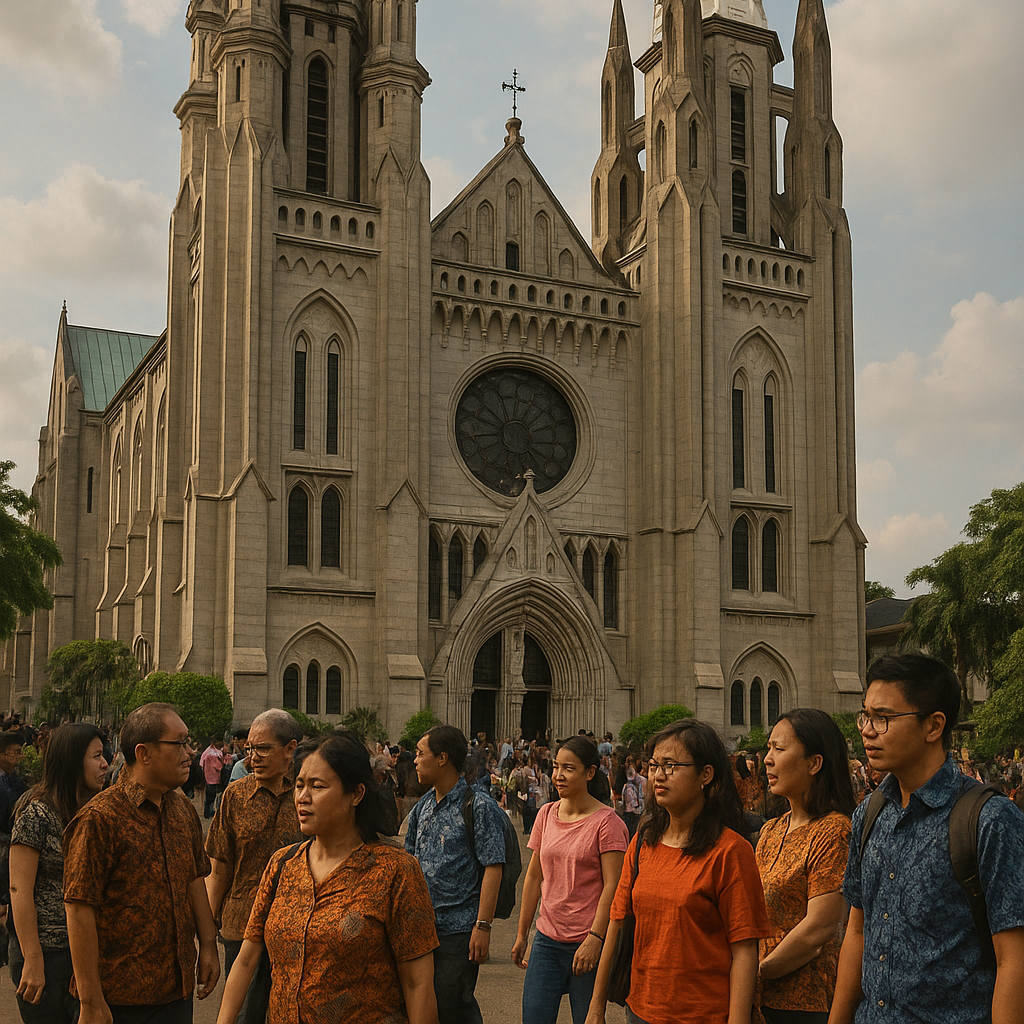Translating the Bible into Local Languages: Efforts to Preserve Languages and Spread the Word of God
theolingua.id – Translating the Bible into local languages is an important step in spreading the Word of God more widely and deeply. By translating the scriptures into languages that are closer to local communities, the spiritual message can be more easily understood and internalised. This also allows people to be more connected to the teachings of their religion in the cultural context they have known since birth.
Apart from functioning as a tool for evangelism, this translation also contributes to the preservation of local languages and cultures. Many local languages are increasingly marginalised due to the times and the dominance of national and global languages.
Therefore, the presence of the Bible in local languages can be a way to maintain the existence of these languages. Various organisations and institutions have carried out this initiative, one of which is the Language and Culture Unit (UBB) of GMIT Kupang, which actively translates the Bible into various local languages in Eastern Indonesia.
The Importance of Bible Translation into Local Languages
Language is the main bridge in communication and understanding. By translating the Bible into local languages, local communities can understand spiritual messages in a more personal and profound way. Many communities still use their mother tongue in their daily lives, so access to the Bible in their own language will increase understanding of and attachment to religious teachings.
In addition, this translation also helps in the preservation of local languages that are increasingly endangered due to the dominance of national and global languages. With sacred texts in local languages, the younger generation will be more encouraged to continue using and maintaining their ancestral languages.
Challenges in Bible Translation
The process of translating the Bible into local languages is not an easy task. There are several main challenges faced by translators, including:
- Vocabulary Limitations
Not all local languages have suitable equivalents for theological terms in the Bible. Therefore, translators must find the closest equivalent or explain the concept with a more easily understood phrase. - Cultural Differences
Different cultural contexts can affect the meaning of a text. Therefore, translators must understand the local culture so that the message conveyed remains true to the original intent. - Resource Limitations
Not all communities have experts who are able to translate the Bible accurately. Training, research, and assistance are needed so that the translation remains faithful to the original text. - Community Acceptance
In some cases, there are community groups that do not accept certain translated versions due to differences in dialect or interpretation. Therefore, translation often requires consultation with local religious and traditional leaders.
The Role of GMIT Kupang’s UBB in Bible Translation
The Language and Culture Unit (UBB) of GMIT Kupang has played an active role in translating the Bible into various local languages in Eastern Indonesia. Through this programme, they strive to ensure that the Word of God is accessible to as many people as possible in a language they understand.
One approach is to involve native speakers in the translation process. This aims to ensure linguistic accuracy and preserve the authenticity of the local culture in the translated text. In addition, GMIT’s UBB is also developing training methods for local translators so that they can work more effectively.
Positive Impact of Bible Translation
The translation of the Bible into local languages has had a significant positive impact, both in religious and socio-cultural aspects. Some of the impacts include:
- Improving Religious Understanding People who have access to the Bible in their own language can better understand the content and teachings of the religion.
- Preservation of Regional Languages The presence of sacred texts in local languages helps to maintain the existence of these languages, so that they do not easily become extinct.
- Increasing Community Participation The translation process involving local communities helps build a sense of ownership of the Bible, so that they are more active in religious activities.
- Promoting Cultural Diversity The existence of various versions of the Bible in local languages demonstrates the cultural richness of Indonesia and recognises the importance of each language in the spread of God’s Word.
Conclusion
The translation of the Bible into local languages is an important step in ensuring that everyone can understand God’s Word in a language they are proficient in. By presenting the scriptures in their mother tongue, people can more easily understand religious messages and make them part of their daily lives.
This process also helps to increase community involvement in religious activities, because they can better read, hear, and discuss the teachings of the Bible in a language they deeply understand.
In addition to strengthening faith, this translation initiative also contributes to the preservation of regional languages that are increasingly endangered. Many local languages have lost their speakers due to modernisation and the dominance of national and global languages.
By presenting the Bible in local languages, the younger generation has the opportunity to continue to recognise, learn, and use their mother tongue. With the efforts of various parties, such as those made by the GMIT Kupang Bible Society, it is hoped that more communities can enjoy the benefits of the Bible in their own language, while preserving this priceless cultural heritage.





